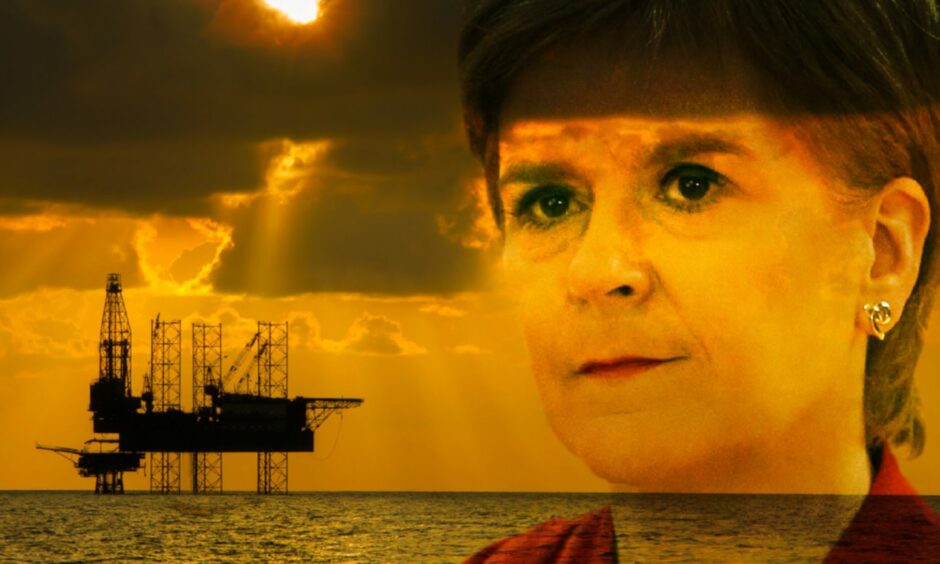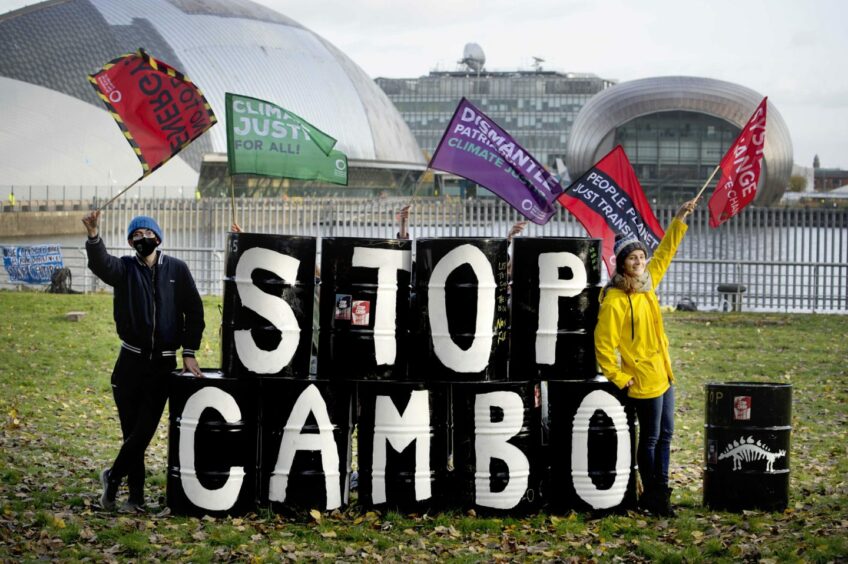
Scotland’s First Minister has been described as a threat to energy security after she reiterated her opposition to a controversial North Sea oilfield.
During a debate in Holyrood, Nicola Sturgeon again expressed her support for “moving away from reliance on fossil fuels” and towards low carbon sources.
She was responding to North East MSP Liam Kerr, who urged her to give “political backing” for production from the Cambo field.
Mr Kerr subsequently accused the First Minister of “putting her fingers in her ears” over the need to protect UK energy security.
The war in Ukraine has made domestic energy supplies a hot top in recent weeks as governments try to reduce imports of Russian oil and gas.
It has led to calls for an increase in North Sea production, particularly given the sharp rise in commodity prices and the impact that is having on consumers.
An extension for the Cambo licenses was granted by the industry regulator on Wednesday, giving operator Siccar Point Energy more time to plan its next move.
In recent times the project has been a key battleground in the climate debate.

Cambo had looked finished after Shell, which holds a 30% stake, opted to pull out of the scheme, but changing sentiment and a high oil price appear to have given it a new lease of life.
Speaking in the Scottish Parliament on Thursday, Liam Kerr said: “Given the Cambo field is priced in to the Climate Change Committee’s net zero projections for decarbonisation, could help reduce the cost of energy bills and create around 4,000 jobs, and would significantly help the UK’s energy security, will the First Minister consider giving her political backing to production from Cambo?”
In response Ms Sturgeon said: “I’ve made clear my views on Cambo. I think they are well known and well reported. I’m not the decision maker on Cambo, but I’ve made my views clear on that.
“I think everybody, even the member’s colleagues in the UK Government, accepts the importance of moving away from reliance on fossil fuels as quickly as possible, but that we need to do that justly. The question is, how do we best do that?
“And of course, a significant proportion of what is produced in the North Sea right now is actually exported right now. We need to invest more in renewables and low carbon sources of energy.”
In its recent 2022 Business Outlook report, trade body Offshore Energies UK (OEUK) warned that without more North Sea investment, the UK will import at least 80% of its gas and 70% of oil by 2030.
Moreover it revealed that in 2021 gas imports from Norway exceeded domestic supplies for the first time ever.
A separate report from the UK Government showed domestic gas production hit a record low last year, with a 17% increase in imports of natural gas.
Following the debate in Holyrood Mr Kerr said: “According to OEUK, we could be importing the lion’s share of our gas and oil domestic demand by 2030, while North Sea production withers on the vine without political backing.
“The war in Ukraine and associated hikes in energy prices has shown how vital it is we protect our energy security. Domestic production is a crucial part of that.
“But Nicola Sturgeon confirmed her reckless approach to the North Sea not only threatens jobs, but that energy security and the wallets of consumers.
“Fergus Ewing told her what everyone knows — domestic production of oil and gas reduces our reliance on imports like LNG. It also massively reduces emissions.
“But throughout FMQs, as she does with so much else, she continued putting her fingers in her ears.”
Recommended for you


 © Supplied by Liam Kerr
© Supplied by Liam Kerr